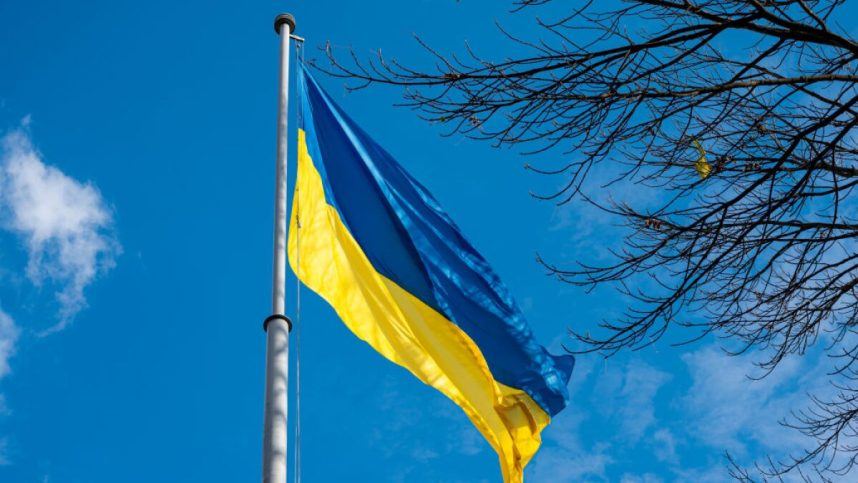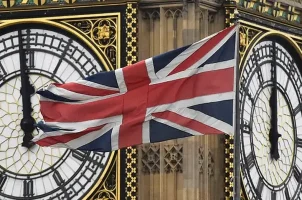Online Gaming Operators in Ukraine to Pay More Taxes on Revenue
Posted on: August 11, 2023, 06:51h.
Last updated on: August 11, 2023, 10:44h.
It’s going to be a little more expensive for legitimate online gaming operators in Ukraine to do business. The Verkhovna Rada, the country’s parliament, has reintroduced an 18% turnover tax for online casino operators.

Danylo Hetmantsev, head of the Rada Committee on Finance, Tax, and Customs Policy, reported the new plan on Telegram. Operators will have to pay the tax on their gross gaming revenue, not gross earnings. As the country continues to try and repel the invasion by Russia, the extra money, if everyone plays by the rules, could help Ukraine provide the basic necessities to millions of displaced people.
Hetmantsev explained that this will bring in at least another UAH1.5 billion (US$40.62 million) to the Ukrainian budget each year. In the first half of the year, Ukraine’s gaming industry delivered almost UAH3 billion (US$81.2 million) to the budget. This amount is 14 times higher than last year’s figure for the same period.
New Tax Slipped Into Legislation
Although it would have likely found support anyway from lawmakers, the new tax didn’t arrive as a standalone bill. Instead, it was slipped into legislation that sought to amend Ukraine’s tax code relating to the “Protection of Human Life at Sea in accordance with Ukraine’s International Treaties.”
Regardless of how it arrived, there was enough support for the measure to pass. Two-hundred-sixty-six of the Rada’s 450 deputies voted in favor of it on the second reading, enough to control the majority.
The change in the online gaming segment is part of a larger shift in tax collection in Ukraine. As of August 1, a draft law partially canceled a moratorium on taxes for excise goods (alcohol, tobacco, and fuel), gambling businesses, and financial services. Starting this October, authorities will begin to more strictly monitor the industries for possible violations and respond accordingly.
A government study earlier this year found that the legalized gambling market in Ukraine was massively evading the payment of taxes. Several operators had been colluding with a number of banks to hide their tracks.
Because of this, the state budget received only 1.2% of the total turnover of the gambling market, which was estimated at UAH180 billion (US$4.87 billion) per year. At the same time, 95% of all gaming business operators didn’t pay taxes at all, according to the government’s findings.
Operators to Blame
One of the main schemes through which the operators managed to avoid taxation was miscoding. All bank transactions have their own four-digit MCC code (Merchant Category Code), which allows merchants, banks, and tax collectors to understand for which product or service the payment was made.
Sports betting or online casino payments at banks were passed as payments for everything from video games to flowers. In addition, some banks, having received money from a gaming operator to pay the winnings to the player, sent it under the code of a different industry or as an ordinary transfer from card to card.
The government study didn’t name the operators, but said that nine banks took part in the scheme at least once, and that six did it systematically. One of the banks, IBOX, reportedly profited as much as UAH2.5 billion (US$67.7 million) a year for its role in the illegal scheme.
Even the National Bank of Ukraine has allegedly been involved, leading to the dismissal of two of its top officials. It reportedly knew what was going on and never tried to stop it. Not only did the bank help operators cover their tracks, but officials also knew that some of the operators were out of Russia, despite a presidential ban prohibiting them from operating in the country.
The return of the gaming tax is a way to try to counter the damage, but its potential effectiveness is questionable. If the banks don’t cooperate, Ukraine won’t receive the additional funds it predicts.
Related News Articles
Gaming Regulators in Lithuania and Ukraine Sign Supervisory Pact
Dutch Gaming Operators Can No Longer Offer Cashback Bonuses
Most Popular
Mega Millions Reportedly Mulling Substantial Ticket Price Increase
NoMad Hotel to Check Out of Park MGM on Las Vegas Strip
VEGAS MYTHS BUSTED: To ‘86’ Someone Was Vegas Mob Slang for Murder
Most Commented
-
End of the Line for Las Vegas Monorail
— April 5, 2024 — 90 Comments -
Mega Millions Reportedly Mulling Substantial Ticket Price Increase
— April 16, 2024 — 8 Comments -
Long Island Casino Opponents Love New York Licensing Delays
— March 27, 2024 — 5 Comments
















No comments yet